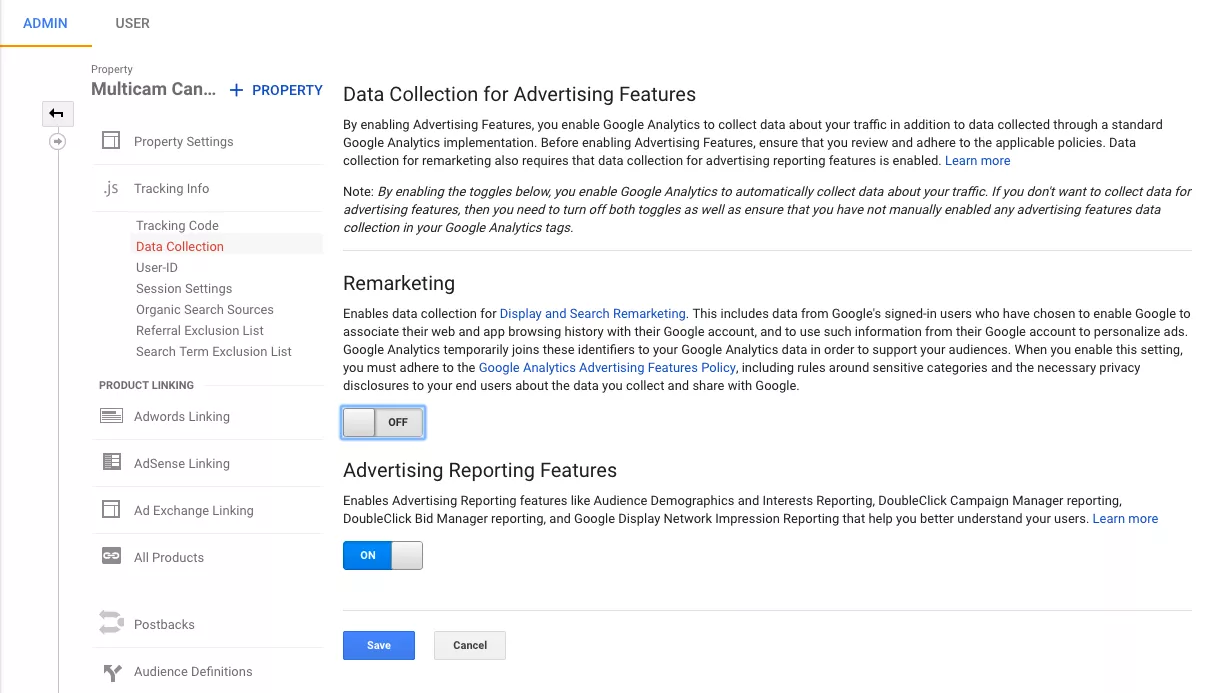Optimizing Your ROI with Remarketing In Google Analytics
Optimizing Your ROI with Remarketing In Google Analytics
Blog Article
Maximize Your ROI With Remarketing in Google Analytics
In the world of electronic advertising and marketing, the use of remarketing techniques within Google Analytics has verified to be a potent tool for enhancing return on investment. By harnessing the power of customer information and customizing advertisements to specific target market segments, services can considerably magnify their conversion prices. However, the real key depend on the art of precision - comprehending customer actions, crafting engaging ads, and continuously refining methods to drive optimal outcomes. The journey to making the most of ROI through remarketing is a nuanced course led with understandings and opportunities that can improve the trajectory of your advertising and marketing undertakings.
Comprehending Remarketing in Google Analytics
Recognizing remarketing in Google Analytics is vital for optimizing your digital advertising technique. Remarketing allows you to target users that have previously visited your web site or communicated with your app, offering them with customized advertisements as they surf other websites or utilize other applications within the Google Show Network. This approach aids maintain your brand name top of mind and motivates individuals to return to your website, inevitably enhancing the possibility of conversion.
By making use of Google Analytics, you can track the performance of your remarketing campaigns, obtaining useful understandings right into customer behavior, engagement, and conversions. This information allows you to fine-tune your targeting, messaging, and bidding strategies to boost the overall effectiveness of your campaigns.
In addition, understanding the various sorts of remarketing listings available in Google Analytics, such as typical, dynamic, and comparable target markets, enables you to create extremely segmented and tailored campaigns tailored to certain individual segments. This degree of granularity can considerably improve the significance and impact of your remarketing efforts, eventually maximizing your roi.
Setting Up Remarketing Checklists
To efficiently carry out remarketing projects in Google Analytics, the initial action includes setting up and creating remarketing listings targeting particular individual segments based upon their communications with your site or app. By establishing remarketing checklists, you can customize your marketing initiatives to reach individuals that have actually currently shown interest in your product and services.
To begin, navigate to the Admin section of your Google Analytics account and choose the Building where you want to develop the remarketing list. After that, under the Residential or commercial property column, click 'Target market Definitions' and choose 'Audiences.' Next, click on the red 'New Audience' button and choose 'Produce New' to define the parameters for your remarketing checklist.

Crafting Effective Remarketing Ads
When crafting your ads, concentrate on producing attention-grabbing headings and compelling visuals that stand apart to prospective customers. Integrate solid calls-to-action that urge users to review your website and finish a wanted action. Use her response dynamic remarketing to reveal personalized advertisements including services or products that individuals have actually formerly watched on your website.
Furthermore, make sure that your advertisements are mobile-friendly because a substantial portion of net web traffic comes from mobile phones. Test different advertisement variations to recognize which messages and designs drive the most effective results. By continually refining and enhancing your remarketing advertisements based on performance data, you can maximize their performance and enhance your return on financial investment.
Studying Remarketing Efficiency

Via Google Analytics, marketing professionals can track the performance of their remarketing projects in real-time, permitting them to recognize fads, patterns, and areas for enhancement immediately. By analyzing the data, online marketers can establish which ads are doing well, which target market sections are responding positively, and which channels are driving one of the most conversions. This level of granularity makes it possible for online marketers to make data-driven decisions to maximize their remarketing advocate far better results.
Optimizing ROI With Remarketing
Assessing remarketing information in Google Analytics enables marketing experts to determine chances for maximizing roi (ROI) through calculated adjustments - What Is “Remarketing” In Google Analytics?. To optimize ROI with remarketing, it is crucial to recognize the actions of your audience. By examining customer communications, such as the web pages they checked out, the items they watched, or the activities they handled your website, you can customize your remarketing projects better
Segmenting your target market based upon their behavior allows you to produce personalized and targeted ads that are more probable to reverberate with them. By showing relevant advertisements to specific sections of your target market, you can increase the opportunities of conversion and ultimately enhance your ROI.
Furthermore, evaluating different ad creatives, messaging, and offers can assist recognize what resonates ideal with your audience. A/B testing enables you to experiment with various aspects of your advertisements to determine what drives the highest interaction and conversion rates.
Verdict
Finally, making the most of ROI with remarketing in Google Analytics calls for a tactical method to evaluating user actions, segmenting target markets, developing tailored ads, and optimizing campaign efficiency. By leveraging data-driven insights and evaluating different approaches, services can improve their remarketing initiatives to drive higher engagement and conversion rates. This organized technique ensures that sources are effectively assigned towards making the most my review here of returns on financial investment in remarketing campaigns.
Next, click on the red 'New Target market' button and select 'Develop New' to specify the criteria for your remarketing listing.
By constantly refining and enhancing your remarketing ads based on efficiency information, you can maximize their performance and enhance your return on financial investment.
By diving into these insights, marketing experts can best site acquire a comprehensive understanding of how their remarketing efforts are reverberating with their target audience and driving conversions. To take full advantage of ROI with remarketing, it is crucial to recognize the habits of your audience.In conclusion, making the most of ROI with remarketing in Google Analytics needs a strategic approach to evaluating individual habits, segmenting target markets, creating tailored ads, and optimizing campaign performance.
Report this page